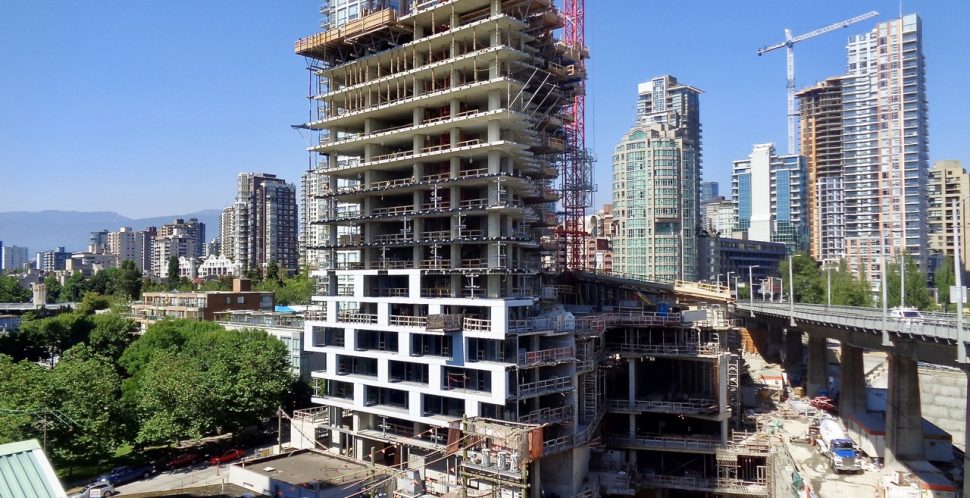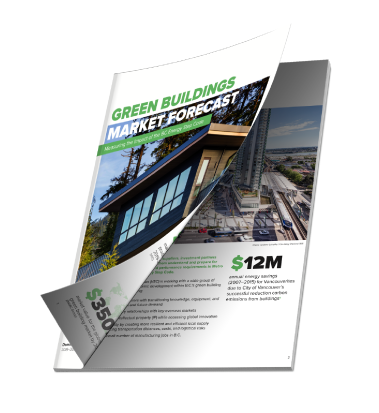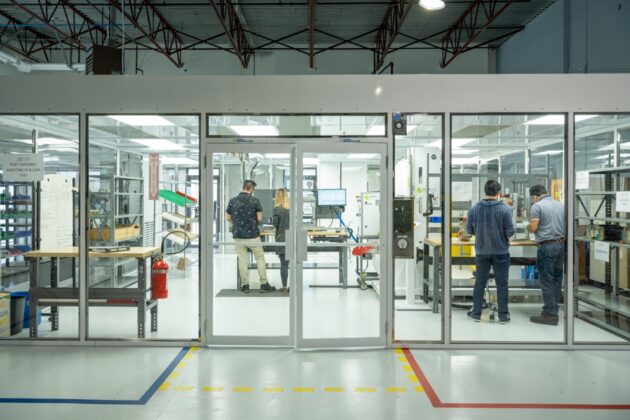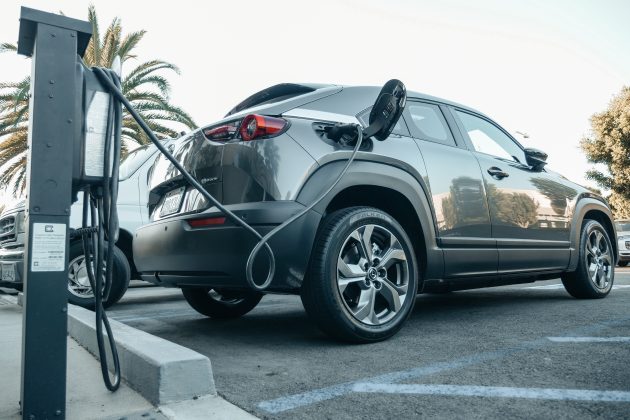Doug Smith, Sustainability Director, City of Vancouver
REPORT SUMMARY
- The BC Energy Step Code has created a local market of $3.3 billion for green building products between 2019–2032, and the potential to create over 1700 manufacturing and installation jobs
- B.C. and Vancouver businesses are well-positioned to take advantage of markets with similar climates and advanced green building codes, including those in Cascadia, and throughout North America
- $3.3 billion is just the beginning: the market for retrofits will grow rapidly as they are further incentivized; local exporters should know that the global, market for green building products has been estimated to grow to $350 billion annually by 2020.
THE OPPORTUNITY
Vancouver is known around the world for its planning and design – its architects, planners, and engineers are especially sought after for their skills in creating sustainable buildings. While this proficiency, long encouraged by local and provincial policy, has long been hailed, in 2019, the Vancouver Economic Commission has begun to quantify just how much this is actually worth:
$3.3 billion dollars between now and 2032
Demand for Building Products
Metro Vancouver, New Construction, 2019–2032 Forecast (cumulative)
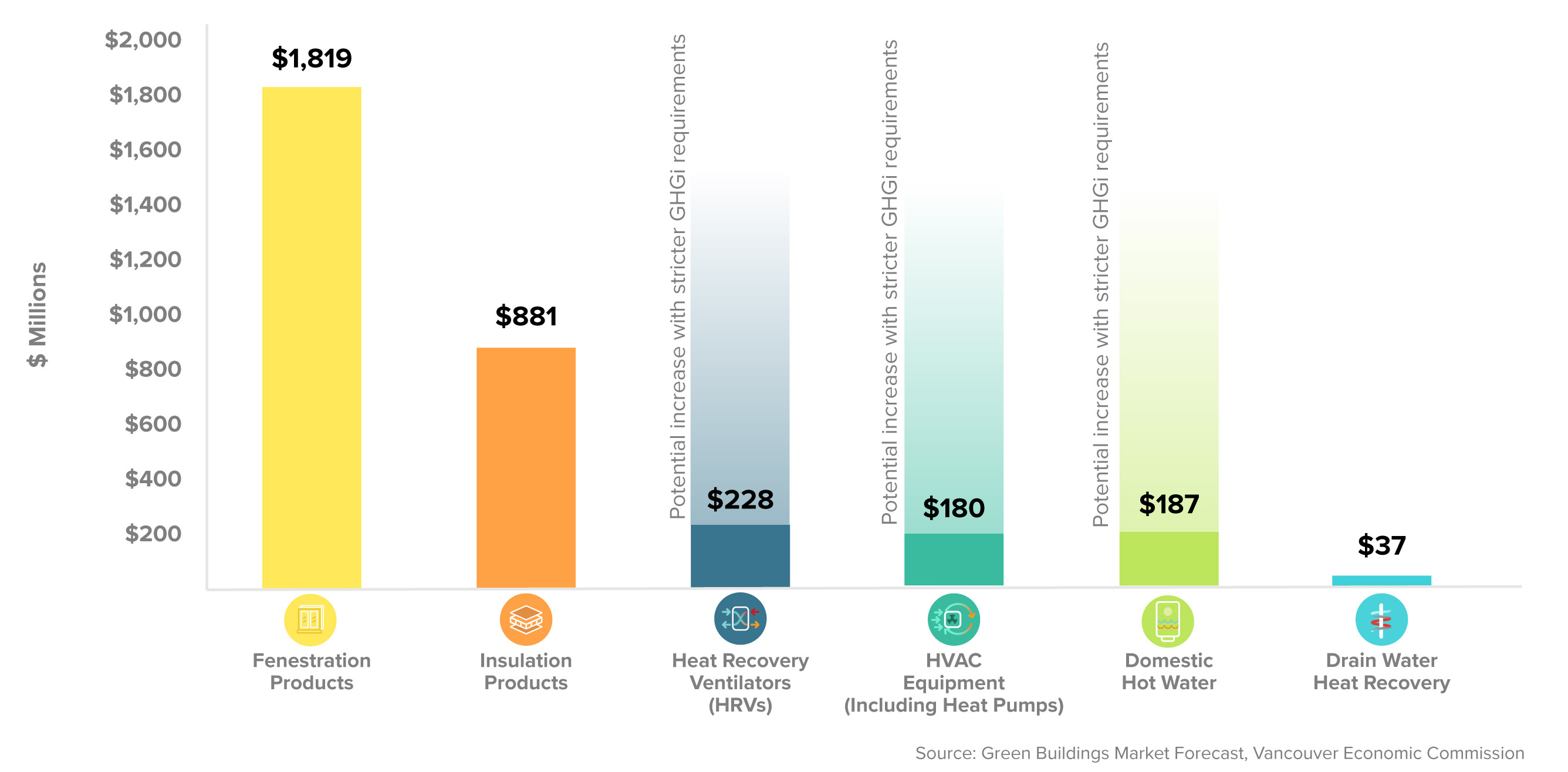
Between the Vancouver Zero Emissions Building Bylaw and the regional adoption of the BC Energy Step Code, a total of $3.3 billion in high-performance building systems and materials will be needed for buildings in the Lower Mainland to meet these two policies. This is a unique opportunity for local manufacturers working in several key product areas:
- Fenestration
- Insulation
- Heat Recovery Ventilators (HRVs)
- HVAC Equipment (including heat pumps)
- Domestic Hot Water
- Drain Water Heat Recovery
Strengthening B.C.’s Green Building Supply Chain
A concerted effort to build on B.C.’s strengths and increase the proportion of high-performance building products manufactured or assembled in the province would allow B.C. to capture economic opportunities from relocalizing the supply chain. These opportunities include:
- The creation of local technology and IP
- Strategic investment into B.C.’s manufacturing infrastructure
- Workforce development
- The proliferation of well-paying, sustainable employment opportunities
- Reducing transportation distances from plant to site
- Improving access/affordability of building products in B.C.
DEMAND IN HIGH PERFORMANCE BUILDING PRODUCTS (2019-2032)
B.C. manufacturers have the opportunity to take advantage of $3.3 billion in demand for high-performance products that can help buildings meet the energy efficiency requirements of these policies.
Trends include an increased demand for electric goods and appliances after 2025, and the evaporation of demand for low-performance window products after 2022.
Delivering High-Performance Buildings
Requires a Wide Range of Products and Technologies
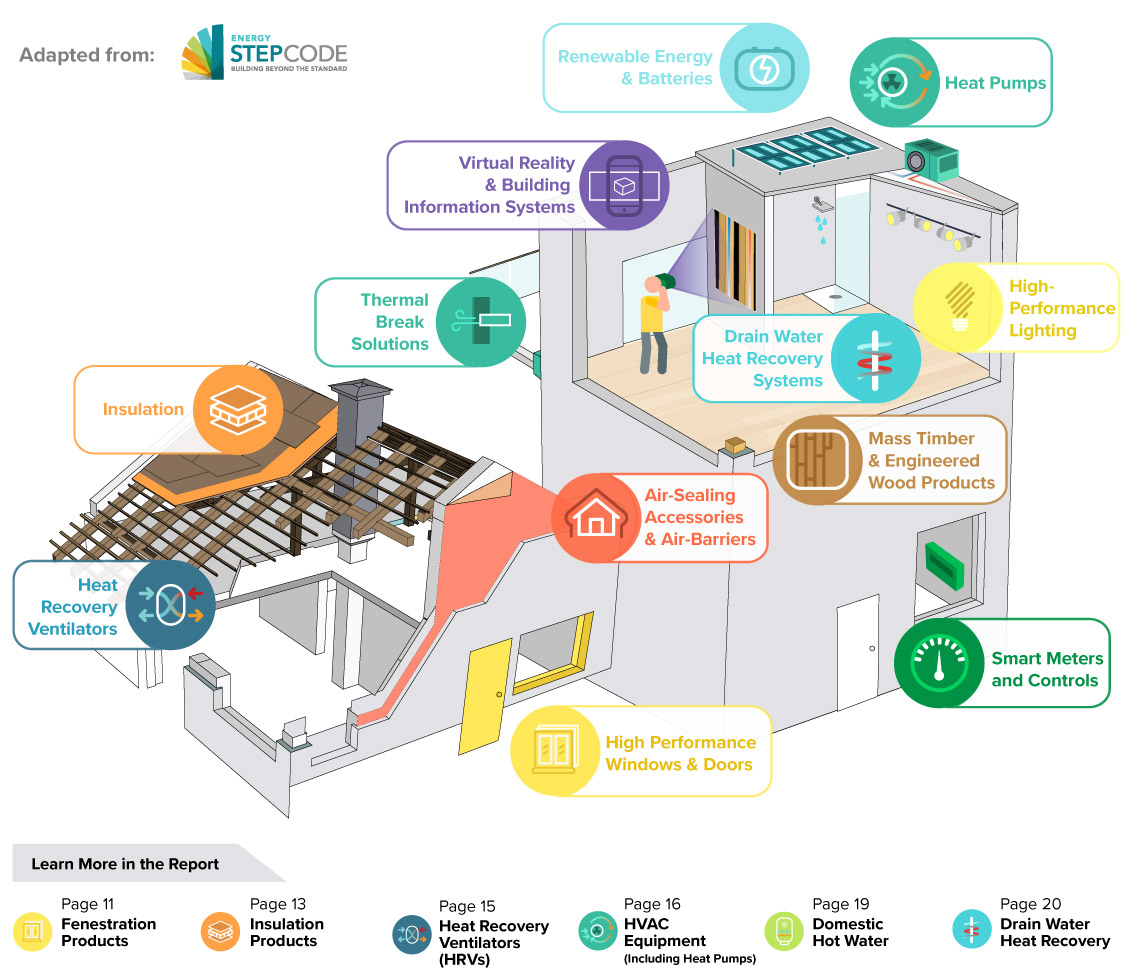
HOW VEC HELPS
VEC serves these local manufacturers, designers, and installers by helping them leverage this demand to grow their businesses. This also helps B.C. homeowners and other businesses transition towards more energy-efficient and affordable operations.
Current initiatives to help these companies include:
- Building on the market intelligence provided by this report to further forecast opportunities and forthcoming changes in green economy sectors like green building and cleantech
- Helping local businesses increase their literacy on climate change and transition their businesses through programs like the Impact 6 Pack
- Supporting land and logistical needs through research such as the Industrial Insights report, and the VEC’s Industrial Concierge
- Coordinating with local industry associations, educational institutions, governments, and others, to build strategies to increase the strength of – and support for – B.C.’s green building cluster
- Working with national and provincial Trade Commissioners to source overseas business leads and help local companies build crucial international partnerships
BACKGROUND
The BC Energy Step Code and Vancouver Zero Emission Building Plan
The City of Vancouver aims to be 100 percent powered by renewable energy by 2050, with all new buildings producing zero emissions before 2030. In its Zero Emissions Building Plan, the City establishes greenhouse gas intensity (GHGi) targets includes a stepped reduction timeline to reflect these targets in Vancouver’s building policies and Building Bylaw.
Similarly, the Province of British Columbia plans to reduce carbon emissions by 40 percent by 2030 (based on 2007 levels), and the BC Energy Step Code charts a path for all new buildings across B.C. to be net-zero energy ready by 2032.
The BC Energy Step Code is a voluntary provincial standard enacted in April 2017 that provides an incremental and consistent approach to achieving more energy-efficient buildings that go beyond the requirements of the base BC Building Code. It does so by establishing a series of measurable, performance-based energy-efficiency requirements for construction that builders can choose to build to, and communities may voluntarily choose to adopt in bylaws and policies.
The full report is critical reading for anyone looking to leverage this market opportunity. Ready to dive right in? Check out the report.
Green Buildings Market Forecast | Measuring the Impact of the BC Energy Step Code
Published: March 7, 2019
Author: Juvarya Veltkamp
Download the Report
Want to Learn More?
For more fast facts and what industry representatives are saying, read the news release.
Wondering how Green Buildings factors into the rest of the green economy? Read our State of Vancouver’s Green Economy 2018 report.
How to Get Involved
Are you a manufacturer of building parts or components with a footprint in BC? We want to learn more about how we can help you. Please take this 3-minute survey.
